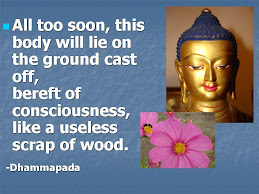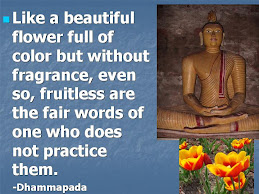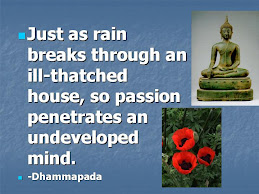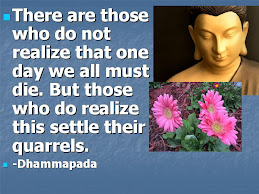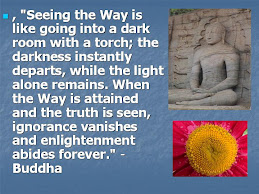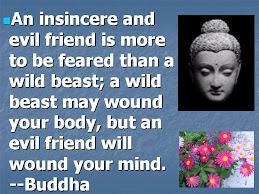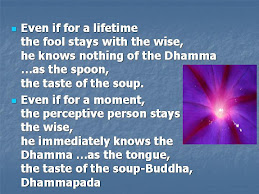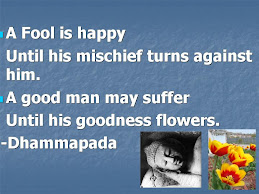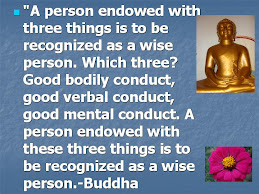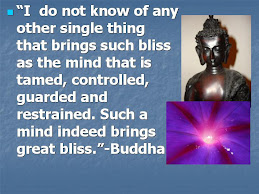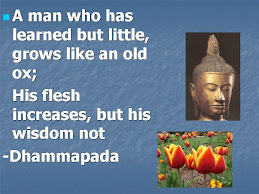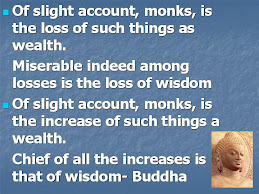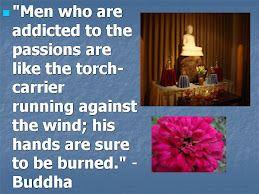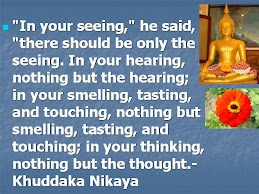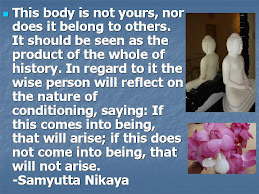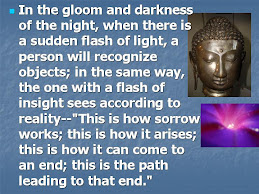
I recently removed weeds off my flower bed and added mulch to prevent further weeds form growing. The mulch helped to prevent new weeds seeding in the flower bed. However to my surprise, after about a week I found new weeds coming through the thick layer of mulch (see the photo above).
This reminded of me of the three layers of defilements
* in our minds. The most superficial layer of defilements arise from our bodily actions and our verbal actions. The defilements from our bodily actions are the killing living beings, stealing, and sexual misconduct. The defilements that arise from our verbal actions include false speech, slanderous speech, harsh speech and idle chatter. Restraining from this is basically cultivating the morality (
Sila precept). These I compared to the existing weeds in the flower bed that were removed at the onset of cleaning.
Applying mulch to the bed was to prevent from new weeds growing in the flower bed from disposition of weeds carried by the wind. In this simile I compared these to our obsessional defilements of the mind called the hindrances. They are sensual desire, Ill-will, sloth and torpor, restlessness and remorse and doubt. Practicing samatha meditation (
Samadhi precept), for example breath meditation, will suppress these defilements.
However the deep layer of defilements in the mind are just like the deep rooted weeds in this simile. They will surface from time to time given the right conditions, unless they are completely removed without a trace. In the garden I learnt that I had to remove all the weeds down to the tiniest roots before applying the mulch to keep the flower beds weed free. In the mind the deep "weeds" of defilements are mainly removed by wisdom gained through insight practice or Vipassana meditation (
Panna precept). Some of the deep rooted defilements of the mind are listed below.
(1) Covetousness and unrighteous greed (2) ill will (3) anger (4) hostility (5) denigration(6) domineering (7) envy (8) miserly(9) hypocrisy(10) fraud (11) obstinacy (12) presumption (13) conceit (14) arrogance (15) vanity (16) negligence
I learnt about the three layers of defilements* from the visiting Buddhist monk, Venerable Uda-Iriyagama Dhammajeeva Thera of Nissarana Vanaya (Forest) Meditation Centre, Sri Lanka, who is currently conducting a meditataion retreat at The Toronto Maha Vihara.














